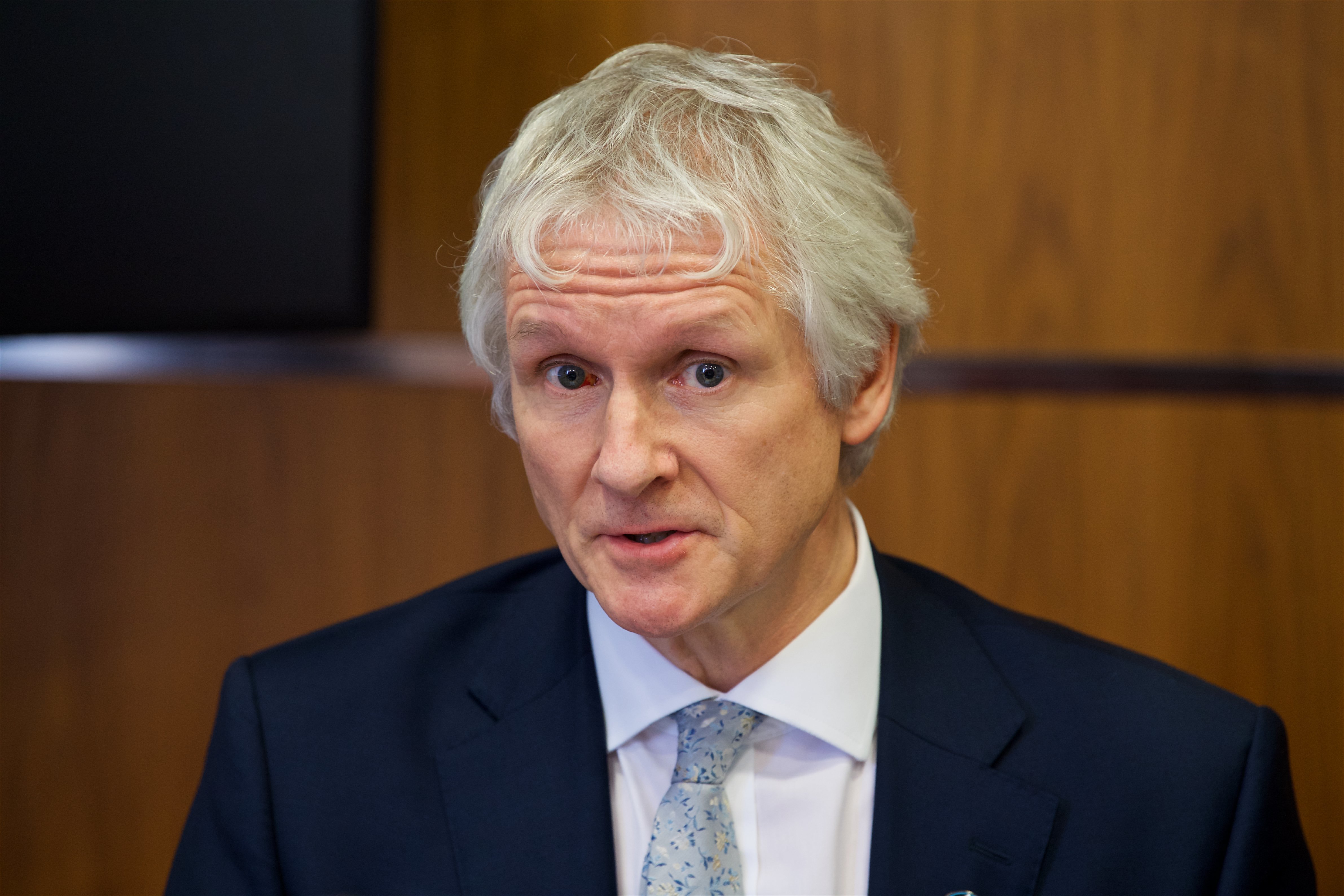Dr Ivan Muscat said that vaccinating 12–15-year-olds could also prevent disruption to the education system, which marred pupils’ school experience during the third wave this summer.
The government announced last month that it would be offering a single vaccine to this age group, with around 600 young Islanders now having had their jab.
Speaking during an Ask the Experts event at Fort Regent, Dr Muscat said: ‘It is important I think to use all the weapons at our disposal to keep Covid at bay as we go into winter.’
He added: ‘We don’t know exactly what winter is going to bring, but we do think there’s going to be greater pressure from flu and other viruses.’
When asked by a young member of the audience why they should get the vaccine if they were healthy and young, Dr Muscat said: ‘The benefit is not as great as if you are unhealthy or old, but there is still a benefit.’
Covid-19 could still cause hospitalisation, he said, and disruption to school and education. Dr Muscat said that if all of the around 4,000 children aged 12 to 15 in the Island were vaccinated, it would prevent one hospital admission a year.
‘We have all heard how disruptive Covid can be to children’s day to day lives,’ Dr Muscat said. The vaccine, ‘together with other measures’, reduced the threat both to the individual child and the general wellbeing of children, he said.
Consultant paediatrician Dr Owen Hughes said that long-term complications of vaccinations were ‘vanishingly rare’ and any complications would happen within a few days.
He added: ‘These are very, very safe vaccines and the disease is worse.’
The expert panel was also made up of children’s commissioner Deborah McMillan, head of the vaccination programme Becky Sherrington and Children, Young People, Education and Skills director general Mark Rogers.
Isolation requirements in schools were eased yesterday because of low infection rates. Children who are identified as direct contacts can now remain in class, as long as they do not have symptoms, but must take a PCR test within three days. Unless they receive a negative result, they can remain in school.
Mr Rogers said: ‘We have been watching very carefully what infection rates are like in the Island and at the moment we are confident that they are low.’

Commenting on recent vaccination protests outside schools, Mr Rogers said he respected people’s freedom of speech but added: ‘I would prefer if those protests took place elsewhere. I think it is important that children have a calm and considered space in which to hear and think about the information that they are provided with.’
The panel stressed the importance of communication when it came to vaccines, with Ms Sherrington saying: ‘We know that information is really important for people’s decision-making.’
Meanwhile, Mrs McMillan said: ‘What’s really important here is that young people are being given choice.
‘It is only right that young people have that choice as well. In order to make that choice they have got to have access to information.’
The panellists stressed that it was a decision for children to make, in conversation with their parents, with the jab requiring parental consent.






